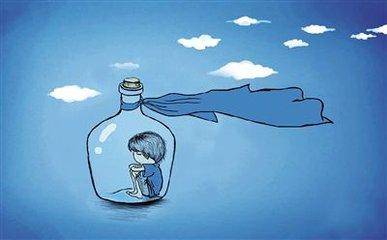Not liking to talk and not enjoying socializing does not necessarily equate to autism, but there is indeed a certain correlation between the two. To quickly distinguish whether a child has autism, we can observe and evaluate the following aspects:
1. Understanding the difference between autism and reluctance to talk or socialize
Definition of autism: Autism, also known as autism spectrum disorder, is a pervasive developmental disorder that may be caused by factors such as genetics, brain structure, and functional abnormalities. Its core symptoms include communication difficulties, social interaction challenges, and repetitive behaviors.
Difference between introverted personality and autism: Children with an introverted personality may also be reluctant to talk or socialize, but this is primarily a reflection of their character traits and usually does not accompany language impairments, behavioral abnormalities, or intellectual disabilities. In contrast, autism is a pathological state, which, in addition to social obstacles, may also present symptoms such as delayed language development and repetitive, stereotyped behaviors.
2. Observing specific behaviors of the child
Language development: Children with autism often show signs of delayed language development, such as speaking late, unclear pronunciation, limited vocabulary, and grammatical errors. In contrast, while introverted children may speak less, their language function is typically normal.
Social skills: Children with autism lack interest and skills in interacting with others and find it difficult to establish and maintain relationships. They may be indifferent to people and events around them, lack eye contact, and struggle to understand and respond to others’ emotions. On the other hand, introverted children, while also not fond of socializing, can usually communicate normally when interacting with familiar people.
Behavior patterns: Children with autism often exhibit repetitive and stereotypical behaviors or activities, such as spinning, sniffing, and playing with switches. These behaviors are often meaningless, repetitive, and difficult to interrupt. In contrast, introverted children do not exhibit such abnormal behaviors.
Intellectual level: Although the intellectual level of children with autism varies due to individual differences, approximately 70% of patients have intellectual disabilities. In comparison, introverted children generally do not have intellectual impairments.
3. Professional evaluation and diagnosis
If parents have concerns about their child’s behavior, they should promptly take the child to a professional institution for evaluation and diagnosis. Doctors will assess the child’s development in languages, social skills, behaviors, and other areas through detailed inquiry into medical history, physical examinations, and psychological assessment scales to make an accurate diagnosis.
[For copyright infringement, please contact for deletion].


